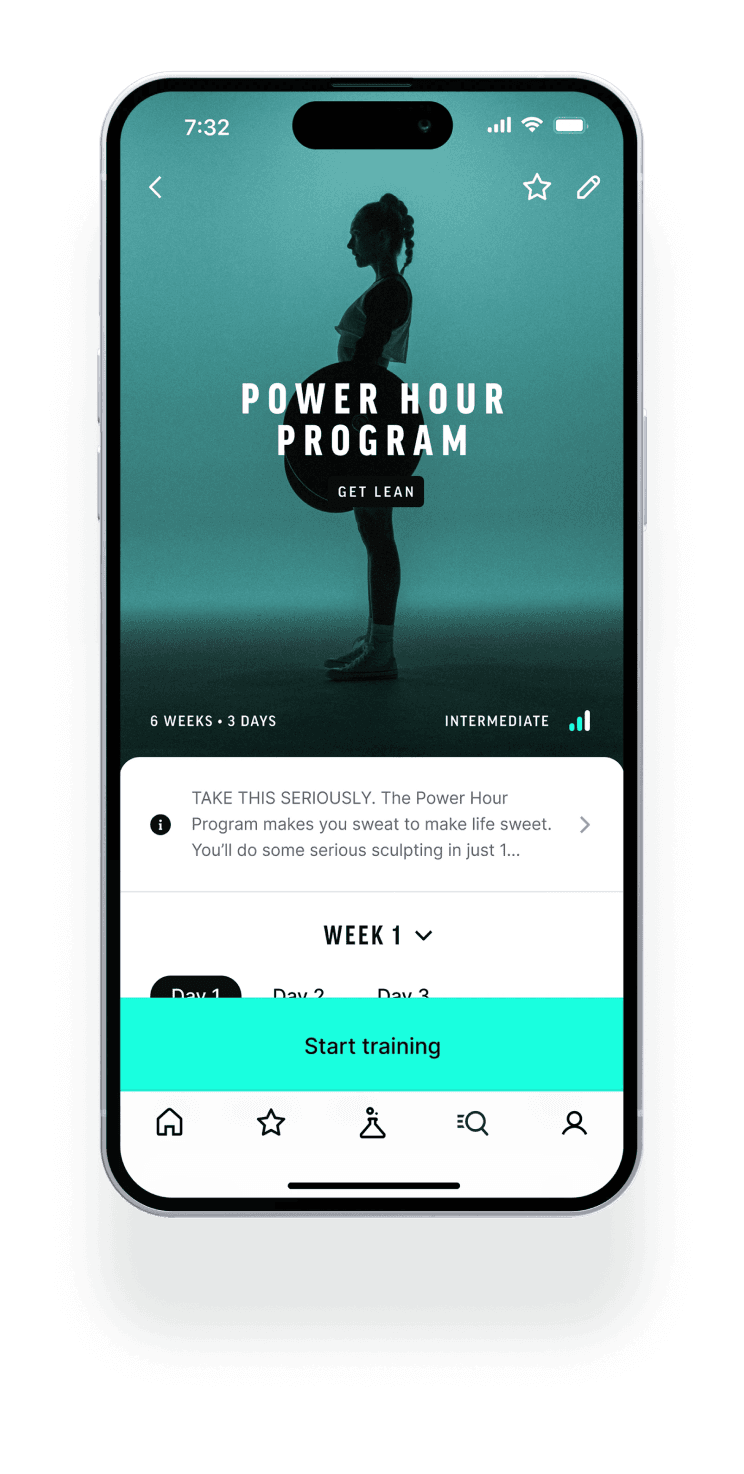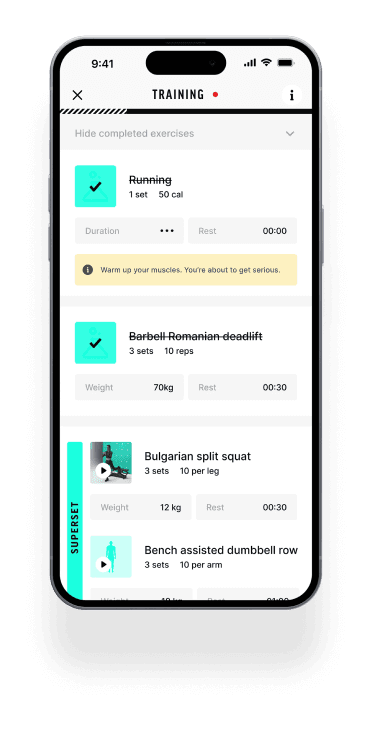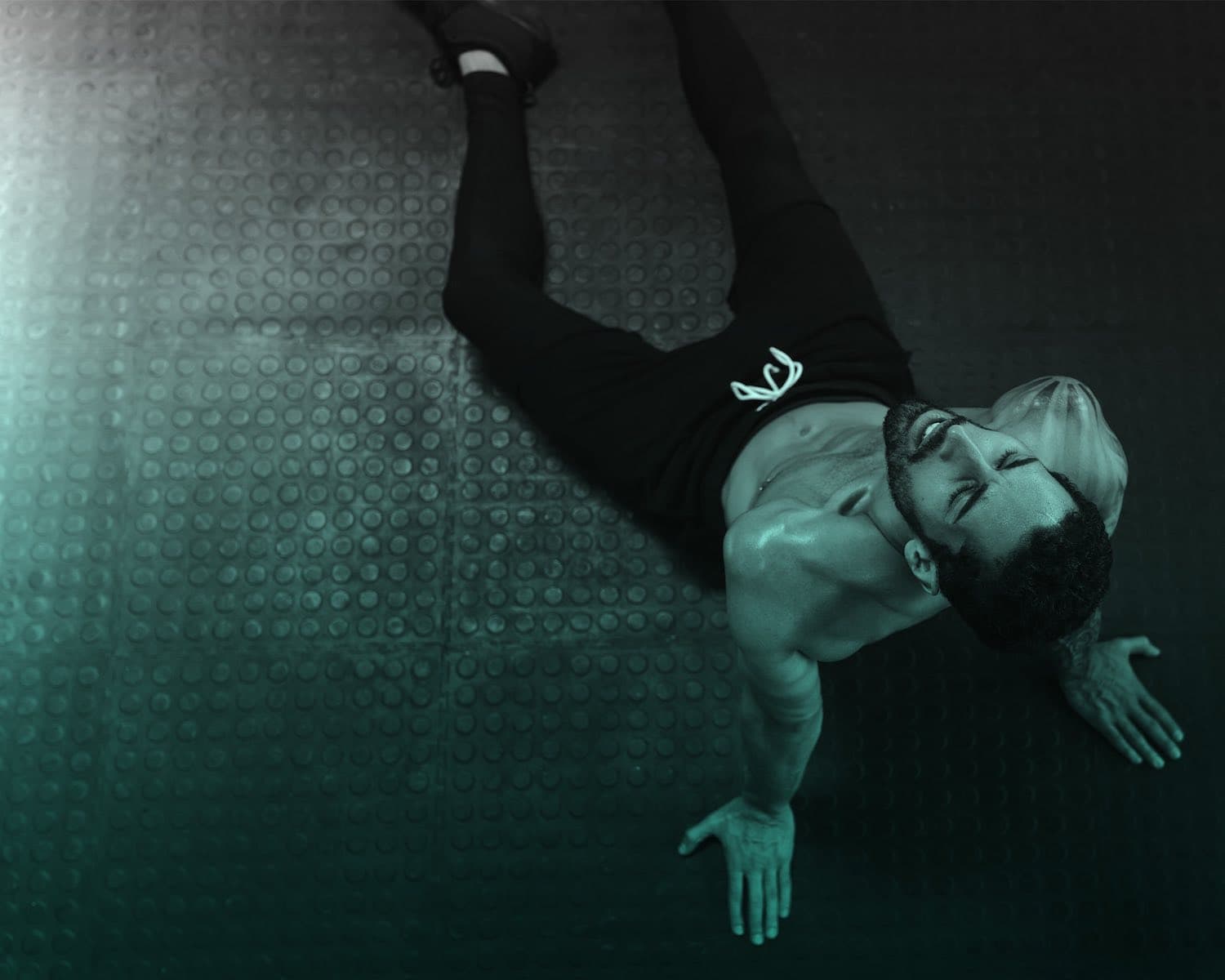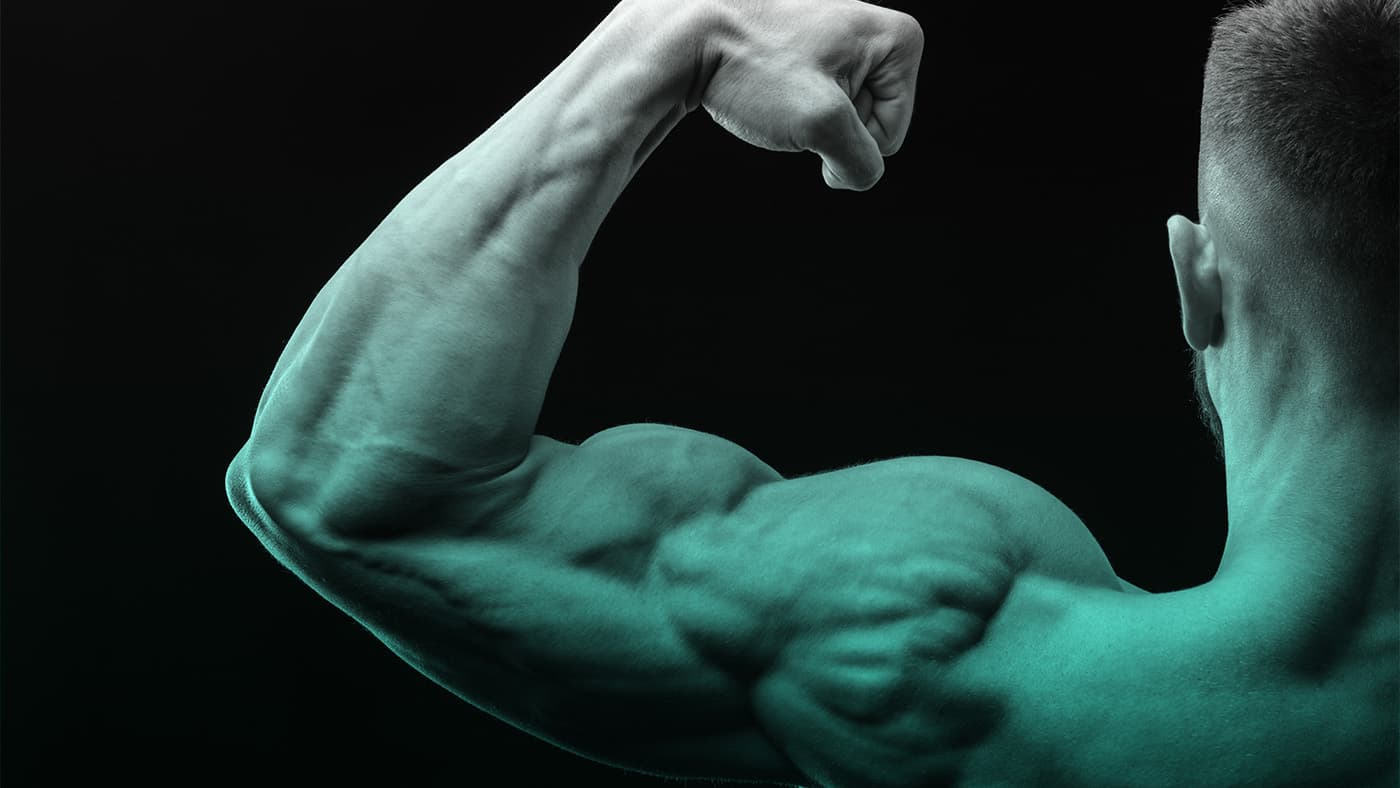The Effects of Alcohol on Your Muscles
Almost everyone enjoys a beer, wine, or other alcoholic beverage from time to time. Do you know what the effects of alcohol are on your muscles? Or how alcohol impacts your sleep? The relationship between alcohol and hydration?
In this article, you'll find answers to these questions and more. To put it differently: what's the influence of alcohol on your muscle mass and other important aspects of your body?
The Impact of a Night of Drinking
In this scientific review, I aim to outline the effects of a night of heavy drinking on your muscle mass, strength, and recovery. Both big and small drinking nights. Does alcohol hinder muscle building and promote muscle breakdown? The answer surprised me, and I bet it'll surprise you too. How many drinks can you have without disastrous consequences? How does alcohol affect your recovery and sleep? Lastly, we'll look beyond the occasional indulgence. What's the effect of regular alcohol consumption, say every weekend, on your gains?
Effects of Binge Drinking
You won't immediately see the effects of a night of heavy drinking in the mirror. Though during summer vacation, I do feel like a bloated balloon after a night of indulging. But let's put that aside. You won't lose all your muscle mass in one night. However, your muscle cells are affected by alcohol. And it's not just your muscles—your brain and hormone-producing organs are affected too. Every night you drink has an impact on the long-term results of your muscle mass. In fact, some nights of heavy drinking can directly affect your performance. The most consensus comes from research involving alcohol intake of 1 gram per kilogram of body weight. From this amount onwards, you start seeing significant effects on muscle growth, recovery, and strength output. To put it in perspective, this would be around 8 drinks for someone weighing 80 kilograms. A beer of 250 ml with 5% alcohol or a wine glass with 12% alcohol contains about 10 grams of alcohol (12 ml is about 10 grams). When discussing heavy drinking in this review, we refer to this amount (1 g/kg) or more.
Influence of Alcohol on Recovery and Muscle Strength
Alcohol doesn't just affect your mood. It also affects your recovery process after training. If you down a significant amount of alcohol (>1 gram per kilogram of body weight) in the evening after an intense training session, your trained muscles recover more slowly. Your recovery can be negatively affected for up to 48 hours. You'll notice this in the amount of strength your trained muscles can generate. It clearly diminishes, especially in the muscles of your lower body. However, if you limit yourself to those 8 drinks (for an 80 kg person; divide your body weight by 10 to know how many drinks apply to you) and don't train intensely, the difference in strength output and recovery won't be significant. Half of this number of drinks (0.5 g/kg) also has little influence on recovery time. So, don't worry about being weaker tomorrow if you have a glass of wine or two tonight.
Alcohol Reduces Muscle Building
What's clear from the literature is that alcohol significantly disrupts protein synthesis (muscle building). A 24% reduction in protein synthesis, even with sufficient protein intake, is not uncommon. If you binge drink only once a year, it's not a big issue. But if you regularly consume alcohol, you'll miss out on muscle mass in the long term. The more you drink, the more you disrupt protein synthesis. I haven't found a specific threshold for when alcohol starts affecting protein synthesis. Without delving into the entire molecular process, alcohol reduces the activation of the 'muscle growth kickstarter (mTOR)' among other things. After an effective workout, you send a signal to your muscles to grow. It's like flipping the mTOR switch, which ensures that your muscle cells recover and potentially build more muscle mass, provided there's enough protein available. Alcohol diminishes this response. If you binge drink after training 30 times a year, you'll have a weaker growth response 30 times a year. In my opinion, that's not taking your training seriously.
Alcohol Doesn't Directly Lead to More Muscle Breakdown
Alcohol doesn't directly lead to more muscle breakdown. Let me repeat that—alcohol doesn't directly lead to more muscle breakdown. This conclusion surprised me. Despite some studies finding evidence that certain enzymes related to muscle breakdown (such as MuRF1) increase with alcohol consumption, there's no evidence that alcohol directly causes higher muscle breakdown. The loss of muscle mass is attributed to reduced muscle building instead. At any time of the day, including as you're reading this article, tissues in your body (including muscle tissue) are engaged in breaking down and building proteins. If you were to drink alcohol now, it wouldn't accelerate the rate of muscle breakdown. However, the rate at which you replace the broken-down proteins would slow down, since protein synthesis (muscle building) operates less efficiently. In short, if you're losing muscle mass, it's due to slower building, not faster breakdown. If you'd asked me before whether alcohol contributes directly to muscle breakdown, I would have confidently said yes.
Higher Cortisol Levels due to Alcohol—Bad for Muscle Growth?
You've probably heard of the hormone cortisol. A hormone your body releases in response to stress. Alcohol intake after a workout doesn't necessarily lead to a higher cortisol response (an effective workout also causes a cortisol spike), but it does prolong the response. A temporary cortisol response isn't a big deal, as it's followed by a strong protein-building reaction. However, if you have consistently elevated cortisol levels over time, this can contribute to higher protein breakdown. Again, if you occasionally have a night of heavy drinking, it won't have significant consequences for your muscle mass. But if you drink regularly, every small decrease or hindered muscle building adds up to less results.
Alcohol Amount and Training Intensity—Crucial Factors for Recovery
Since some readers skim through articles looking for interesting headings, let me briefly reiterate the impact of alcohol amount and training intensity on recovery. The more you drink, the longer your recovery from training takes. One gram of alcohol per kilogram of body weight (8 drinks for an 80 kg person) leads to significantly longer recovery after an intense training session. If either the training was less intense or the alcohol intake was much lower, the difference in recovery wouldn't be significant. However, if you're not training hard, you'll get minimal results regardless.
Alcohol's Effect on Muscle Building in Practice
Making theoretical connections is interesting, but practice is much more fascinating. These studies examined the impact of one night of heavy drinking on recovery time, strength output, and muscle building/breakdown response. These snapshots, especially with substantial alcohol intake, aren't favorable for your muscle mass. However, these studies didn't look beyond these snapshots. We will. How do you feel the day after a night of heavy drinking? Are you motivated to work out? And if you do work out, do you push yourself as hard as after a sober night? And the day after that? The fact that a night of drinking doesn't directly impact your muscle mass is just one part of the equation. If drinking leads you to train less frequently or less intensely, you're missing out on a lot of growth stimuli. If you don't train, you'll slowly lose muscle mass (use it or lose it). Perhaps alcohol influences as much as 30% of your growth potential in this way (I'm just throwing out a random percentage here).
Alcohol Helps You Fall Asleep Faster, But Sleep Quality Suffers?
Who hasn't experienced this? You're already asleep (in a coma) before your ear even touches the pillow. "Thanks, dear Mojitos, sweet dreams!" Indeed, alcohol does reduce the time between being awake and falling asleep. However, it disrupts your entire night afterward. Literally! Your sleep isn't as deep (REM sleep is shorter). During the second half of the night, you're much more likely to wake up. This often happens, even if it's just a half-awake, half-asleep state. Since alcohol is a diuretic, you'll probably need to use the bathroom at least once (extra). Quality sleep is crucial for (cognitive) recovery, and disturbing it results in clear consequences the next day(s). You're more tired, craving caffeine, finding it harder to concentrate, and so on. So, when you think, "Hey, if I drink alcohol, I'll fall asleep faster. Give me that bottle!" you're setting yourself up for a negative spiral.
Alcohol and Dehydration
Another point to highlight: alcohol and dehydration. If you train intensively, you sweat. Sweating is a form of fluid loss. Breathing is too. But nothing is as apparent a water outlet as urinating. Optimal fluid balance is essential for the proper functioning of all cells in your body. That's why we're always advised to drink regularly. And that doesn't mean alcohol. Alcohol works as a diuretic. You excrete more fluid than you take in. That's why restroom attendants at carnivals are always so cheerful. "Give me that extra 50 cents on top of your beer, there you go!" Drinks with an alcohol content of 4% or higher cause the rehydration process (replenishing your fluid loss) after a workout to take longer. So, on your drinking nights, don't forget to consume extra water too. Moreover, dehydration (lack of water in your body) can lead to higher cortisol levels and a lower testosterone response after your workout. Something you wouldn't want if you care about muscle growth.
The Effect of Regular Alcohol Use on Your Muscles
What would be great are long-term studies on alcohol and muscle mass. For example, a 16-week study where participants get thoroughly intoxicated every weekend. Unfortunately, I don't think such a study design would pass the ethics committee. But we can map out the effects of regular alcohol consumption based on the above findings. We've done that to some extent already. One swallow doesn't make a summer. Binge drinking occasionally isn't a big issue. But what if you have over 6 drinks every weekend night? You will and won't notice the effects. You won't notice because you have no idea how much more muscular you could have been if you hadn't drunk those nights. But after reading this article, you do know that you'd be considerably more muscular. To simplify things down to muscle mass: regular alcohol use leads to less muscle growth.
My Opinion—Take it or Leave it ;)
Training is fun, and life should be enjoyable. Personally, I'm not much of a drinker. I drink for 4 days during carnival because, hey, if everyone's tipsy, sobriety isn't as fun. I also drink with friends during vacations and for holiday cheer at Christmas. In short, I won't tell you to live an alcohol-free life. Celebrate what you want to celebrate. But if muscle growth matters to you, choose those moments to celebrate wisely. Having a few drinks each weekend, in my opinion, isn't a problem. Binge-drinking to the point of a coma is just unwise (and dangerous). Not only for your muscles but for your overall health. Lastly, even on drinking nights, don't forget to have a few glasses of water. Let's get serious!
Frequently asked questions about alcohol and muscle mass
What happens if you drink alcohol every day?
Drinking alcohol every day can hinder your muscle growth by disrupting protein synthesis, which is essential for muscle building.
What damage does alcohol cause?
Alcohol can lead to reduced muscle growth, disturbed sleep, and increased recovery time, all of which are detrimental to your muscle mass.
What if you drink 2 bottles of wine a day?
Drinking 2 bottles of wine a day can cause severe damage to your muscle mass due to the constant negative impact on protein synthesis and recovery.
What does alcohol do to your face?
Excessive alcohol consumption can contribute to facial bloating and swelling due to water retention, affecting your facial features.
What does drinking wine every day do to you?
Drinking wine every day can result in reduced muscle growth and negative effects on your sleep, disrupting muscle recovery.
Can you drink wine every day?
While it's possible to have a glass of wine every day without immediate harm, it can have long-term negative effects on your muscle mass and overall health.
Is drinking 1 bottle of wine on the weekend too much?
Drinking 1 bottle of wine on the weekend can have a moderate impact, but it can still affect your muscle recovery and growth.
START TRAINING SERIOUSLY
Discover new training methods based on scientific knowledge, improve your form and technique and seriously track your fitness goals.






